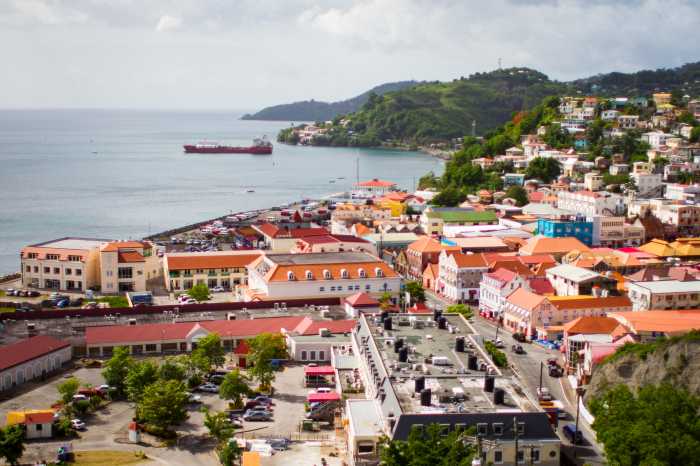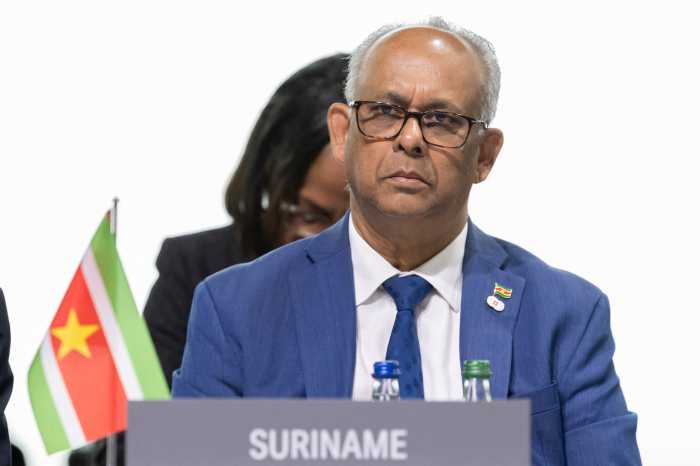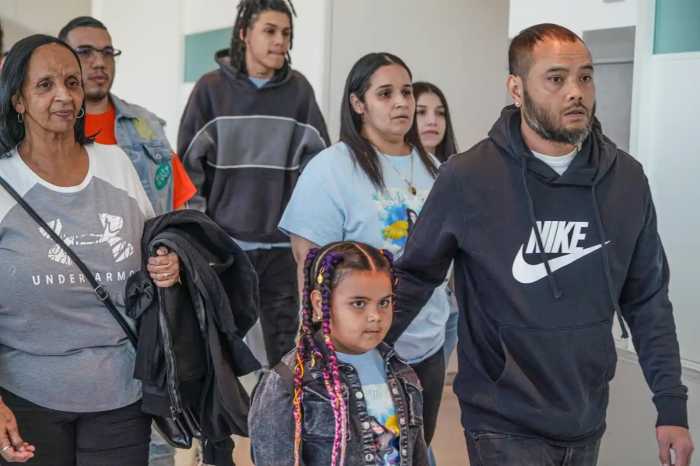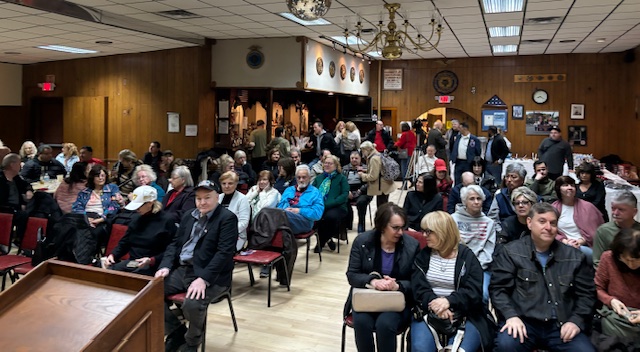Police units in Suriname have begun raids at homes and facilities linked to former President Desi Bouterse in the wake of his failure to report to prison to begin serving a 20-year sentence for mass murders, while the cabinet has seized vehicles and have withdrawn state security guards from him.
Bouterse, 78, was to report to the state’s prison system on Friday along with four other ex-soldiers, convicted of participating in the December 1982 mass murders of 15 opponents of the then military government. The 15 were executed at a colonial era fort for allegedly plotting with The Netherlands, Suriname’s former colonizer, and other western nations to reverse the February 1980 coup that had toppled the then elected government.
Three of the five turned up at the Santa Boma Prison to begin their sentence but Bouterse and main bodyguard Iwan Dijksteel both failed to show up, triggering fears that he might have left the country. His wife also told reporters and supporters that he had had no intention of surrendering because a 2012 amnesty that was approved by parliament had provided protection for the five. The constitutional court had ruled that the amnesty was illegal, null and void.
On Tuesday, mixed units from the Suriname national police raided several places known to be linked to Bouterse but there was no sign of him or Dijksteel. Work has also appeared to have stopped on a special detention facility near the main military hospital where Bouterse was to be housed in the event that he needed medical treatment. Dijkteel’s home was also searched.
Commenting on what is clearly an embarrassing situation for his administration, President Chan Santokhi told reporters that the state has begun to dismantle courtesies and withdraw protocols that are normally accorded to a former president. Bouterse and the four lost their appeals against their sentences on Dec. 20. There are no more judicial options left. Santokhi said the court has also ruled on amnesty.
“The judge also clearly said, also based on the ruling of the constitutional court, that the Amnesty Act is contrary to the constitution and international treaties. And that the amnesty act has, at least at the moment, been inactivated and does not function. So the amnesty act does not exist,” Santokhi said.

























